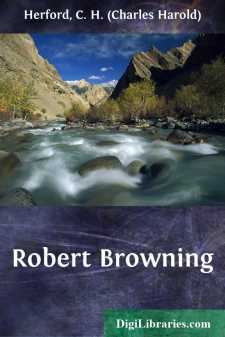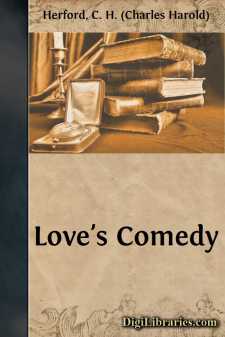Categories
- Antiques & Collectibles 13
- Architecture 36
- Art 48
- Bibles 22
- Biography & Autobiography 813
- Body, Mind & Spirit 142
- Business & Economics 28
- Children's Books 17
- Children's Fiction 14
- Computers 4
- Cooking 94
- Crafts & Hobbies 4
- Drama 346
- Education 46
- Family & Relationships 57
- Fiction 11829
- Games 19
- Gardening 17
- Health & Fitness 34
- History 1377
- House & Home 1
- Humor 147
- Juvenile Fiction 1873
- Juvenile Nonfiction 202
- Language Arts & Disciplines 88
- Law 16
- Literary Collections 686
- Literary Criticism 179
- Mathematics 13
- Medical 41
- Music 40
- Nature 179
- Non-Classifiable 1768
- Performing Arts 7
- Periodicals 1453
- Philosophy 64
- Photography 2
- Poetry 896
- Political Science 203
- Psychology 42
- Reference 154
- Religion 513
- Science 126
- Self-Help 84
- Social Science 81
- Sports & Recreation 34
- Study Aids 3
- Technology & Engineering 59
- Transportation 23
- Travel 463
- True Crime 29
C. H. (Charles Harold) Herford
Charles Harold Herford (1853–1931) was a British literary scholar and critic known for his work on English literature, particularly the works of Shakespeare and the Elizabethan period. He is best remembered for his "Eversley Series" edition of Shakespeare's complete works, which included critical essays and annotations. Herford also wrote "The Age of Wordsworth," a study of the Romantic poet and his era, highlighting the influence of nature and emotion in literature. As a professor of English Literature at the University of Manchester, Herford made significant contributions to literary studies and was regarded as an influential educator in his field.
Author's Books:
Sort by:
CHAPTER I. EARLY LIFE. PARACELSUS. The Boy sprang up ... and ran,Stung by the splendour of a sudden thought.— A Death in the Desert. Dass ich erkenne, was die WeltIm Innersten zusammenhält.— Faust. Judged by his cosmopolitan sympathies and his encyclopædic knowledge, by the scenery and the persons among whom his poetry habitually moves, Browning was one of the least insular of English...
more...
INTRODUCTION* Koerlighedens Komedie was published at Christiania in 1862. The polite world—so far as such a thing existed at the time in the Northern capital—received it with an outburst of indignation now entirely easy to understand. It has indeed faults enough. The character-drawing is often crude, the action, though full of effective by-play, extremely slight, and the sensational climax has...
more...



